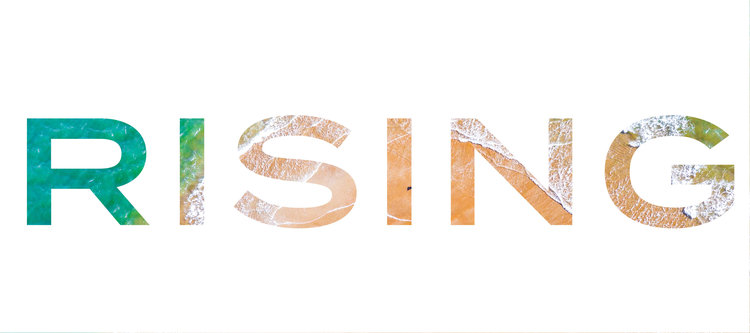about
about
RECORD FLOODING. EROSION. DAMAGED INFRASTRUCTURE. HURRICANES. BEACH RENOURISHMENT. LOSS OF TOURISM. SALTWATER INTRUSION. STORM INTENSITY. FISH STOCK DISTRIBUTION. DEVASTATING STORMS. RAISED HOMES. AGGRESSIVE DEVELOPMENT. WARMING CLIMATE. PROPERTY LOSS. DROUGHT.
Change is a constant across the sounds and along the banks of coastal North Carolina. The perpetually shifting sands, rising and falling tides, and unpredictable weather patterns have battered and blessed communities, all the while shaping these resilient people. For generations, those who’ve lived at the water’s edge have adapted as omnipresent natural forces influence where they live, how they build homes, what foods they eat, and how they make a living.
In a region where lives and livelihoods depend on natural resources — for traditional occupations of fishing and farming, and for newer economies based on tourism and development — what does constant change, heightened by rising global temperatures and encroaching sea levels, mean to those who live and work in these communities?
Advances in technology, engineering, and construction, alongside real and perceived commercial and economic demands and drivers, have shifted how we adapt to environmental changes. We build bigger dunes and more jetties. We harden shorelines. We dredge inlets and renourish eroded beaches. We build our houses higher, but closer to the water. We pave over land and employ dikes to drain agricultural fields and protect them from saltwater. We face decisions about fisheries regulations as waters warm and migration patterns potentially change. We brace for storms with or without flood insurance — and hope that infrastructure is spared or restored quickly to supply basic needs. As each new hurricane season unfolds, we learn to live with the uncertainty.
Beyond statistics, graphs, and projections, what are the experiences and adaptation strategies of people who live on the front lines of coastal change? How might the stories of residents, business owners, commercial fishermen, farmers, and community leaders offer insight into the multi-faceted threats facing coastal communities? Can their stories transcend political discourse and offer an alternative perspective that captures the natural, cultural, and economic consequences of environmental change? How do their experiences affect perceptions of future climate-related events and the need to prepare and adapt?
Bridging the arts, sciences, and humanities, RISING will culminate in a traveling exhibition in an effort to help all North Carolinians better understand the jeopardies of living, working, and doing business along our coast and how to prepare and adapt for a more resilient tomorrow.
The traveling exhibition launched at UNC's Center for the Study of the American South in February 2018. The project traveled back to the coastal communities it represents and has been exhibited at the Core Sound Waterfowl Museum & Heritage Center in Harkers Island, NC (where it survived the wrath of Hurricane Florence), as well as the Coastal Studies Institute in Wanchese, NC, in October 2018-March 2019. It was last shown at North Carolina State University in Raleigh, NC in Spring 2019.
The project includes photography by Baxter Miller, oral histories conducted by Ryan Stancil and Dr. Barbara Garrity-Blake and scientific interpretation by Dr. Jessica Whitehead. Additional team members include Karen Willis Amspacher (Marshallberg), Alton Ballance (Ocracoke), Ben Cahoon (Nags Head), Dr. Stan Riggs (East Carolina University), Susan West (Buxton) and photojournalist Margaret Cheatham-Williams (NY Times).
This project is made possible by The Community Collaborative Research Grant, a program of North Carolina Sea Grant in partnership with the William R. Kenan Jr. Institute for Engineering, Technology and Science. North Carolina Sea Grant provides research, education and outreach opportunities relating to current issues affecting the North Carolina coast and its communities. Sea Grant's initiatives and projects touch a broad range of topics, including fisheries, seafood science and technology, water quality, aquaculture, community development, law and policy, and coastal hazards. Learn more about North Carolina Sea Grant at ncseagrant.org.
Additional support has been provided by The Center for the Study of the American South, Southern Cultures, Food for All, Coastal Resilience Center, and the UNC Department of American Studies, Coastal Studies Institute, NCSU Interdisciplinary Studies Program.

